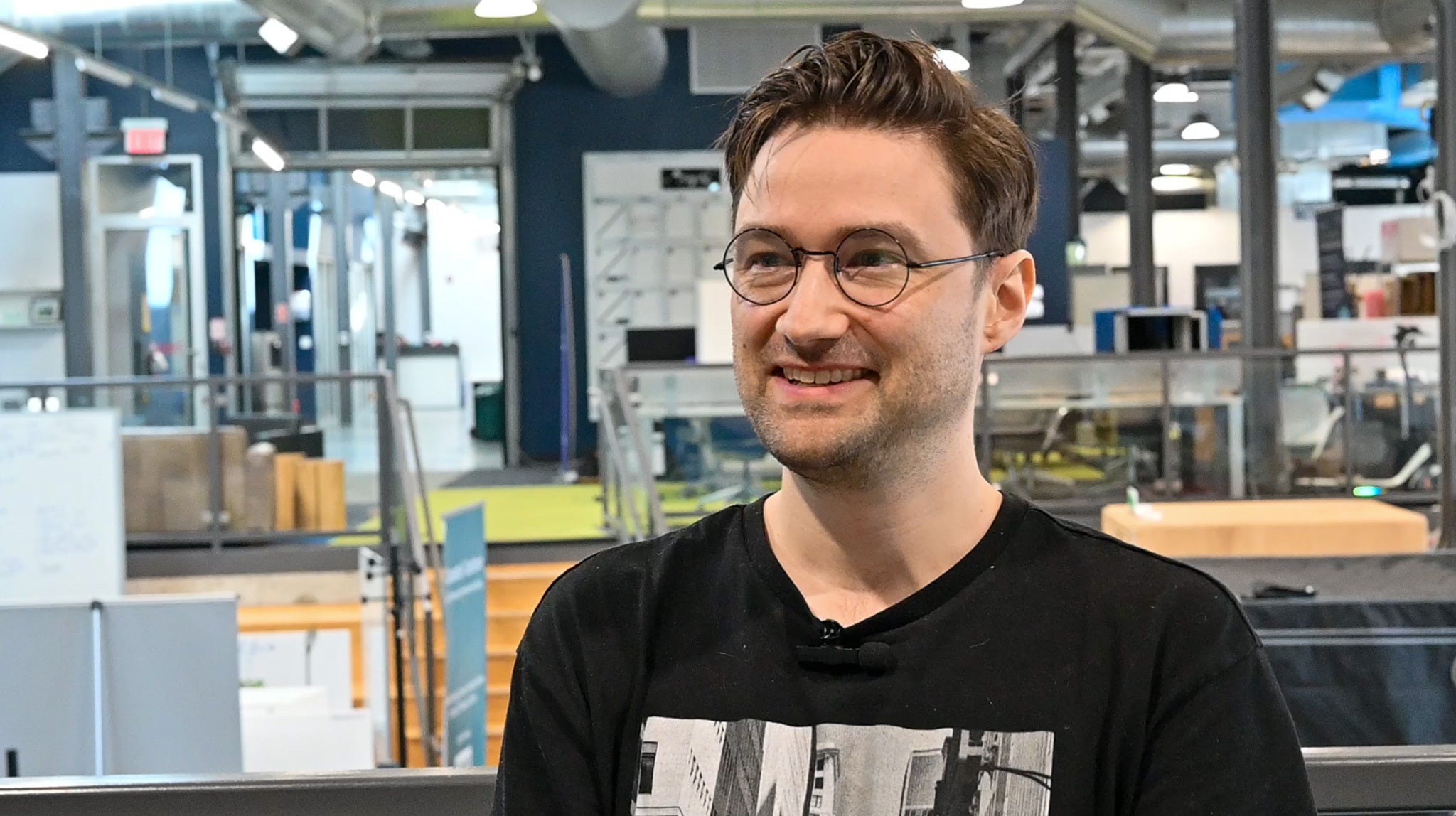
Create your own virtual world – no coding expertise necessary
Mtion's new product opens novel ways for creativity and connection via live-streaming

Mtion's new product opens novel ways for creativity and connection via live-streaming
By Media RelationsThere is a massive world online forging human connection through virtualized forms of reality. Live-streaming services, like the popular content platform Twitch, allow creatives to stream to tens of thousands of viewers who watch live and interact with content creators.
Creators are hungry for artistic autonomy, and viewers want a better interactive experience, said Jeremy Hartmann (PhD' 21), founder of mtion.tv, a company at Velocity, University of Waterloo's startup incubator, which has just released a new gaming engine to the public.
"The gap right now is that existing game engines require a lot of expertise and years of software developing experience, but we are providing a tool that lets anyone build out these online spaces without having extensive developer background," Hartmann said. "It's a no code game engine, which enables gamers to build 3D spaces to express themselves and engage and interact with their fans in immersive settings."

Jeremy Hartmann, founder of mtion.tv
Choosing from a catalogue of virtual spaces, mtion users can create mini-games, interactive experiences and build an expansive universe with their avatars and characters who have backstories, all of which they can live-stream to their fans. Mtion is also working on features that enable multi-player options, allowing streamers and their fans to interact in a virtual space.
"Creators want to expand beyond what is available and differentiate themselves from the sea that is the creator space right now," said Hartmann.
Mtion was born out of Waterloo research, where Hartmann completed his PhD studies in Human and Computer Interaction under professor Daniel Vogel in the Faculty of Math, where he is now a post-doctoral fellow. He started officially working with Velocity after winning the $5K pitch competition in 2020 and soon after started working out of the incubator.
Since then, Hartmann has raised a pre-seed round, hired seven staff, and now has released the game engine on Steam, an online game distributor – like the App Store but for PC games.
"Research asks and attempts to answer specific questions but often without having a direct impact on people," Hartmann said. "I wanted to see whether my research in live streaming — how to immerse the viewer in the player's virtual world — could be applied and made into a product that users love, and get utility and benefit from, and creating mtion was the next logical step."
An innate curiosity led Hartmann to his PhD and ultimately becoming a startup founder, but entrepreneurship always percolated in the back of his mind.
"Waterloo is known around the world as a hub of innovation, and the university's IP policies are the most entrepreneurship-friendly out of any university," Hartmann said. "Applying my PhD to practical applications and bringing that to a broader audience excited me because I could have a different type of impact."
And through Velocity mentorship and being immersed in the startup community, mtion grew.
"The hardest thing about entrepreneurship is the vast uncertainty of choice — you're in the middle of the sea, and you don't know what the signposts are," Hartmann said. "At Velocity, advisers and other founders can provide insight into the right choices, insights that have to come from having prior startup experience, about where to turn at a time when you don't know what choices to make."
About Velocity
Velocity accelerates entrepreneurs' growth from ideas to early-stage start-ups and beyond. These founders have access to unmatched resources, collaboration space, funding, and an expansive and experienced network made possible only by the University of Waterloo — Canada's top university for founders. In the 15 years since its inception as a University of Waterloo residence, more than 400 Velocity companies have netted over 26B USD in value.

Read more
The Government of Canada announces funding to support research in food policies and medical devices

Read more
Researchers developed a process to reduce the amount of energy needed to run data centres

Read more
Here are the people and events behind some of this year’s most compelling Waterloo stories
The University of Waterloo acknowledges that much of our work takes place on the traditional territory of the Neutral, Anishinaabeg, and Haudenosaunee peoples. Our main campus is situated on the Haldimand Tract, the land granted to the Six Nations that includes six miles on each side of the Grand River. Our active work toward reconciliation takes place across our campuses through research, learning, teaching, and community building, and is co-ordinated within the Office of Indigenous Relations.